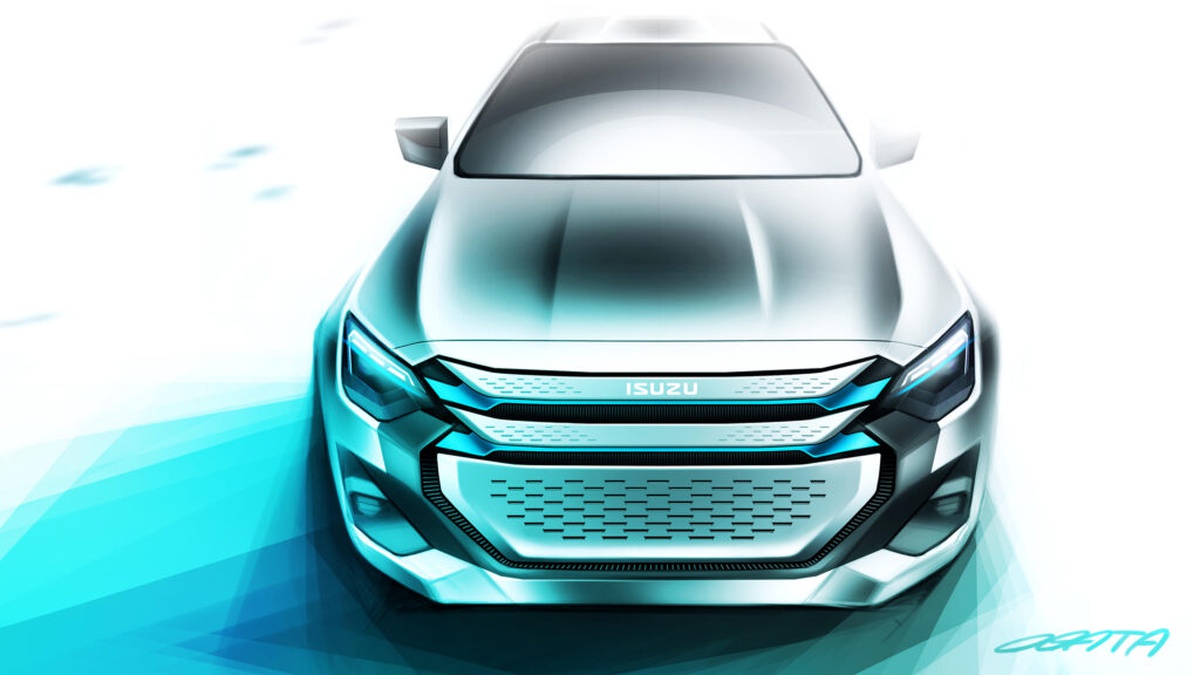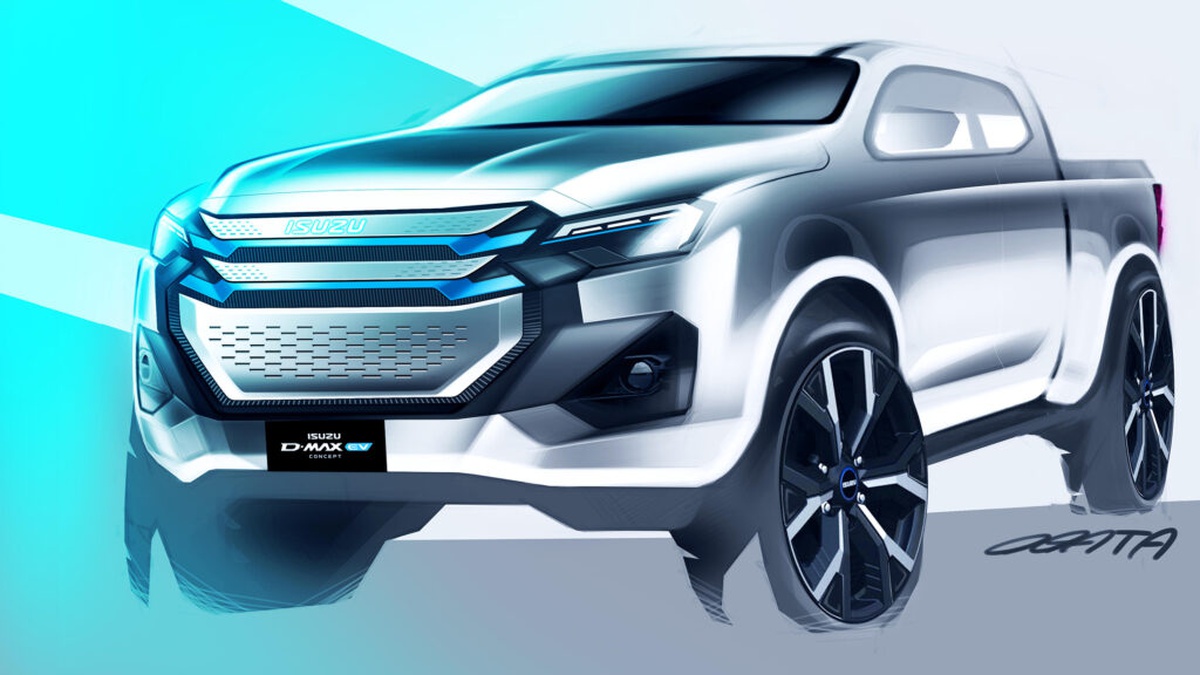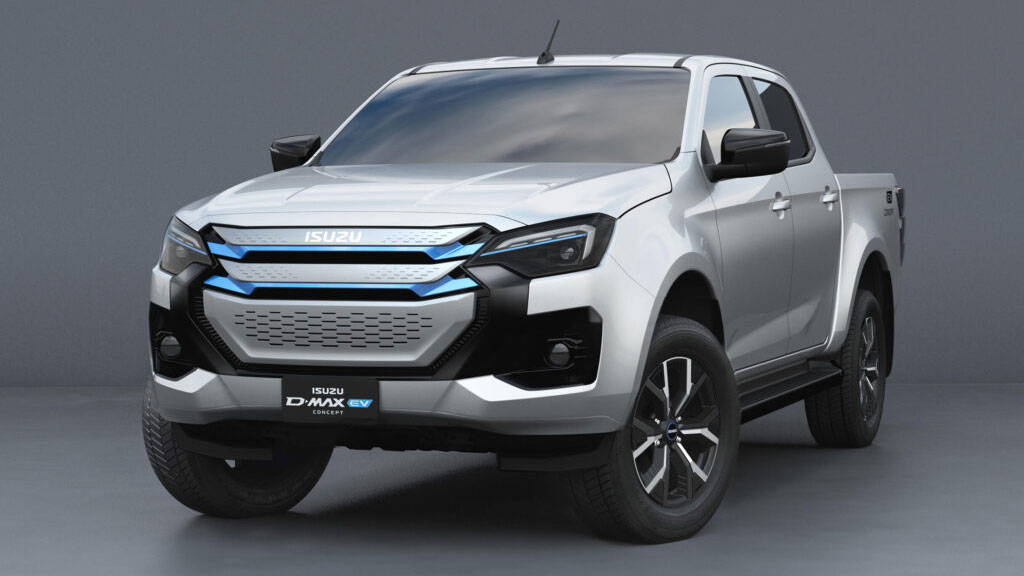The Isuzu D-Max BEV pre-production prototype will debut on March 27 at the Bangkok International Motor Show in Thailand. It is scheduled to launch in Europe in 2025. Isuzu will also showcase another D-Max prototype with a mild-hybrid diesel, but it is unclear if it will go into production.
The pickup's zero-emission version uses the same ladder-frame chassis as the facelifted internal combustion model. However, it replaces the turbodiesel with a full-time 4WD system that has newly developed e-Axles in the front and rear. It is powered by a 66.9 kWh lithium-ion battery pack.
The front motor produces 54 horsepower (40 kW) and 108 Nm of torque, while the rear motor contributes an additional 122 horsepower (90 kW) and 217 Nm of torque. The BEV produces a combined output of 177 hp (130 kW) and 325 Nm of torque, making it more powerful than the base-spec 1.9-liter diesel.
The driving range of the electric pickup has not been disclosed by the company. However, it has been confirmed that it matches the 1,000 kg payload and 3,500 kg towing capacity of the existing diesel-powered trims. The top speed will exceed 130 km/h.
Its redesigned nose features a covered grille for improved aerodynamics and blue accents. The rest of the dual-cab bodywork is shared with the ICE-powered D-Max, and there are new six-spoke wheels and 'EV Concept' badges on the profile. It is unclear if the production version will differ from this prototype.
Isuzu plans to launch the D-Max BEV in select mainland European markets, such as Norway, in 2025. However, the electric pickup will also be available in the UK, Australia, Thailand, and other countries. The decision to launch in these countries is based on market needs and the maturity of EV charging infrastructure.


Isuzu D-Max EV concept design sketch
Isuzu presented not only the fully electric version but also the D-Max Hi-Lander MHEV prototype. The latter is equipped with a slightly electrified 1.9-liter turbodiesel engine that features a 48V system. Additional information, such as the specifications of the mild-hybrid truck and future production plans, will be announced at a later date.
The Toyota Hilux and Ford Ranger, competitors of the Isuzu D-Max, have recently introduced mild-hybrid and plug-in hybrid versions, respectively. However, at present, neither of them offers a BEV powertrain option.
Source: Isuzu

